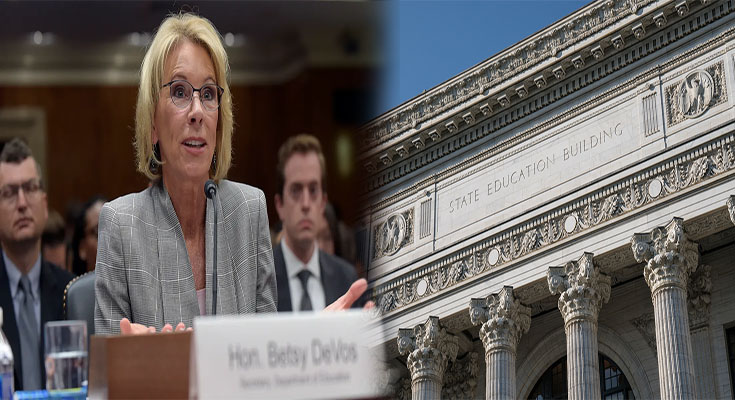The Secretary of Education is a crucial member of the Presidential Cabinet who plays a major role in shaping the national education policy and ensuring access to quality education for all. The person appointed to this position is responsible for overseeing and executing various responsibilities that have a direct impact on the education system of the country. In this article, we will delve into the current responsibilities and role of the Secretary of Education.
Overview of the Secretary of Education
The Secretary of Education is a high-ranking member of the executive branch of the federal government. Appointed by the President, the Secretary serves as the principal advisor to the President on all matters related to education policy. The Secretary of Education holds significant influence over education policies and programs at all levels, including early childhood education, K-12, higher education, and vocational education.
Key Responsibilities of the Secretary of Education
1. Education Policy Development and Implementation
One of the primary responsibilities of the Secretary of Education is policy development and implementation. The Secretary oversees the development, coordination, and implementation of policies that promote access to high-quality education. This involves communicating with stakeholders, policymakers, and educators to ensure that policies are informed and meet the needs of various constituents.
2. Administration of Education Programs
The Secretary of Education plays a key role in administering federal education programs. For example, the Department of Education administers the Free Application for Federal Student Aid (FAFSA), which provides students with grants, loans, and work-study programs to pay for college. Additionally, the department also administers the No Child Left Behind Act, which sets standards for K-12 education.
3. Promotion of Educational Equity and Excellence
Another important responsibility of the Secretary of Education is to promote educational equity and excellence. This includes ensuring that all students, regardless of their background or geographic location, have access to high-quality education. The Secretary works closely with educators and policymakers to develop plans and initiatives that support marginalized and disadvantaged students.
4. Oversight of Federal Education Programs and Initiatives
The Secretary is responsible for monitoring and overseeing all federal education programs and initiatives. This includes conducting research, evaluating effectiveness, assessing outcomes, and making recommendations for improvement. The Secretary also works with lawmakers to develop and implement new programs and initiatives that meet the ever-changing needs of students and educators.
The role of the Secretary of Education is a crucial one that has a direct impact on the education system of the country. From shaping education policies to promoting educational equity, the Secretary plays a critical role in ensuring that all students have access to high-quality education. As the country continues to face unprecedented challenges in the education space, the role of the Secretary of Education has never been more important.





